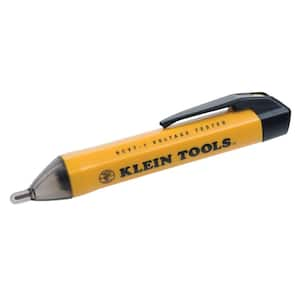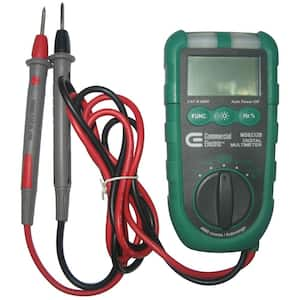I’m just going to admit right now that there has been more than one time in my life that I straightened out a bobby pin and tried to use it to unscrew a switch plate cover instead of digging through the Bermuda Triangle of tools that gather around my workbench to find a screwdriver. I’m telling you, things go into that area and they never come out again. (Hence the new tool boxes.)
Also I once electrocuted myself with a phone line, but I swear I was using approved equipment that time and not repurposed fashion accessories. Anyway, given that and the fact that MysteryMans BFF was the Chief Electrician for the Memorial House, I never actually felt the need to stock up on “electrical stuff”. I’m happy to try not to cut my fingers off with the saws most of the time and let someone else worry about getting zapped.
Except now that I’m out on my own I find the occasional light fixture or switch needs to be changed, and what’s a girl to do except for stock up on more tools? (That’s rhetorical, by the way. I know what else I should be doing besides buying more tools… laundry. But still.)
Here are the tools on my list for basic electrical work:
#1 Voltage Tester
Takes the guess work out of whether or not you’re about to get electrocuted. Hold this close to an outlet or wire and it will beep (or beep, light up, and vibrate if you get the fancy version) to let you know if the wire is hot.
#2 Rubber Grip Hand Tools
I have a flat and phillips head screwdriver made specifically for electrical work that I keep separate from the other tools so that I don’t feel the urge to pull things out of my hair and stick them in the electrical outlets. This is an added protection against zappage (and their the right size for most outlet and cover screws.
#3 Multi-Purpose Wire Stripper/Bender
Great for stripping (the PG kind) and bending wires. The Chief Electrician once showed me how to use it properly (hint: stick the wire in the hole and then bend it over to make the perfect “hook” for connecting wires to switches) and I’ll never go back to the utility-knife-and-pliers method of stripping and bending wires.
#4 Wire Nuts
Keep a box on hand. You’ll never know when you need some.
#5 Electrical Tape
Also handy.
Bonus Tool: Digital Multimeter
This one might be just one step beyond basic, but a multimeter can measure current, resistance, and voltage, which can come in handy if you’re troubleshooting electrical issues on small appliances (or tools).
That’s my take on it anyway. Any other must-have tools you keep in your electrical kits? Also, now accepting clever names for my electrical toolbox, which I plan to finish this weekend. “Buzzers, Beepers, and Anti-zappers” is high on the list.








21 Responses
I still keep a hefty pair of pliers around to help bend wires when I need to. Or when you’re trying to get a nut on 3#12’s – it’s useful to twist them all together with pliers before trying to twist a nut on it.
Also, general box cutter is critical for cutting open the sheathing on bundled cables.
ditto the box cutter.
Also a lineman’s pliers, Klein calls it a side cutting square nose plier. the old school electrician that taught me wanted a twisted wire before the nuts went on.
I also prefer the Klein multibit screw driver/nut driver. The 10 in 1 has all the bases covered and 3 nut drivers as well.
Another vote for lineman’s pliers:
http://tinyurl.com/d3gk5ad
And a box cutter.
Also.. an extension cord with a radio plugged in to it. I plug this in to the receptacle I’m trying to kill and turn the volume way up, then start flipping breakers till I get the right one. I have a notebook and pen on a shelf by the breaker panel and I jot down the result so I don’t have to do that particular receptacle again.
That voltage tester is a definite MUST. My first one just quit on me, though. It lasted 2 years and probably around 12hrs of use. It just wouldn’t stay on. But in an older house, even if you think you’ve got the right breaker, you probably don’t. Saved myself a bunch of shocks with that bad boy.
I love the radio idea Kevin!!! I have to recheck the labels on my breaker box [I don’t trust the ones made by the previous owner] and that sounds like a great way to start…
Oops, forgot my naming suggestion.
ala Rice Crispies: “Snap! Crackle! Pop!” (punctuate as desired).
Or the dutch equivalent: “Pif! Paf! Pof!” 🙂
I just feel like I need to spraypaint Pif! Paf! Pof! on something now. Thank god this is a rental.
I’ve always found that twisting the wires is so much easier with a regular pair of pliers – the “pliers” end of the wire stripper is just too small to be very useful. The best part about electrical tools is that most are small enough to fit in your pockets as you go from one outlet/switch/fixture to the next!
good list.
linesman’s pliers are a must
also would second getting a all-in-one screwdriver
klein 11055 strippers are more ergonomic in my opinion.
3m super 88 electrical tape. no reason to skimp on cheap tape
every electrician i’ve ever known has called non-contact voltage testers “liars.” i like them in some cases, but just fyi.
i like having a utility knife for stripping sheathing off romex
and a small powered screwdriver is helpful when doing a lot of outlets/switches in a production environment
also, it should be noted that “electrocution” technically means death. getting shocked is different.
Does it count if I thought I did kill myself? 😉
Thanks for great additions to the list!
haha, yeah i guess we’ll let you slide on that one.
also thought i’d mention channellock 447 which are curved jaw diagonal cutters. great for cutting as well as pulling out cable staples, nails, etc. invaluable. made in the usa. will outlast us all.
also a gfci receptacle tester is good. it will tell you if a receptacle is properly wired and will also test for ground faults which is important to test if you’re uncertain how to wire a gfci.
oooh I forgot about that one. Yes, very handy. I have mine plugged into a receptacle at home right now because the hot/neutral are reversed, and it’s my reminder to fix it over the weekend.
It’s because of the Bermuda Triangle of tools that we keep voltage testers in four different areas of the house: basement, first floor, second floor, and attic. Too much? They’re the best. Zap free since 2008.
Yes all the stuff suggested above plus an electrical snake thingie. I have no idea what they are really called but they are very helpful for pulling wire in tight places in existing homes. We eat, slept, and breathed electrical for two months but I still don’t claim to know anything about it. ; )
The electrical snake is a fish, most people can get by with a 25 or 50ft one without too much trouble, but they are handy.
Great post! And by the way I’m loving the name beepers for your electrical tool box. I have one of those multimeter’s, they’re great, such a quick and easy way to test wires and outlets!
Oooooooo- electrical work just plain scares the snot out of me. I can’t even watch someone else do it. :-O
Good list!
I love the wire stripper that grips and strips the wire with one squeeze of the handle; you don’t even have to pull on the sheathing to get it off. The tool does it for you. It’s super easy and quick and almost impossible to hurt yourself!
I’ll vote for linemans pliers as well and I like to have a pair of dedicated side cutters and a utility knife.
Another vote for linesman’s pliers. I find it virtually impossible to twist 3 12-gauge wires together in a way that makes a solid connection without these specific pliers, but it’s easy with them. I would also suggest an outlet tester like the electrical inspectors use. They only cost a few bucks and they tell you whether the outlet is wired properly and grounded, which is nice for checking other people’s work as well as your own. http://www.homedepot.com/buy/electrical/electrical-tools-accessories/sperry/3-wire-circuit-analyzer-1clam-10-clamsmaster-61473.html
It’s going to be finish of mine day, except before end I am reading this great article to increase my knowledge.
I think #1 on this list should have been protective gear… lol. Safety first!
Comments are closed.